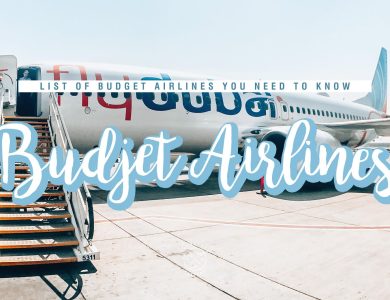
When planning a vacation, one of the most crucial decisions travelers face is whether to opt for a travel package or to book accommodations, flights, and activities separately. This choice can significantly impact both the overall experience and the cost of the trip. While travel packages offer convenience and the allure of bundled discounts, they may not always be the most economical option. This article aims to explore the financial implications of choosing travel packages versus independent planning, providing insights to help you make an informed decision. By examining the advantages and potential drawbacks of travel packages, we will guide you through the considerations necessary to determine the best approach for your budget and travel goals.
Evaluating the Cost-Effectiveness of Travel Packages
When considering the purchase of a travel package, it’s essential to weigh the benefits against the potential savings from booking independently. Travel packages often bundle flights, accommodations, and sometimes activities, promising a streamlined experience. However, these packages can sometimes include costs for services or luxuries you may not need or want. To evaluate their cost-effectiveness, start by identifying the components of the package and comparing them to the individual costs of booking each element separately.
- Flexibility: Packages often have set itineraries. Consider whether the convenience is worth more than the flexibility of creating your own schedule.
- Inclusions: Examine what’s included. Some packages offer meals or tours that might not align with your interests.
- Hidden Costs: Be aware of potential hidden fees or costs for additional services not covered by the package.
By conducting a thorough comparison, you can determine whether a travel package is truly a bargain or if you’d be better off arranging your travel plans independently. This approach ensures that you pay only for what you value, potentially leading to significant savings.
Understanding the Hidden Fees in Bundled Deals
Travel packages often lure customers with promises of convenience and cost savings, but hidden fees can quickly erode these benefits. When evaluating a bundled deal, it’s crucial to scrutinize the fine print to avoid unexpected charges. Here are some common hidden fees you might encounter:
- Resort Fees: These are mandatory charges that cover amenities like pools, gyms, or Wi-Fi, and are often not included in the advertised price.
- Taxes and Gratuities: Taxes may not be included in the initial package cost, and some packages automatically add gratuities for services, which can add up quickly.
- Change or Cancellation Fees: Many packages have strict cancellation policies, and changing your itinerary could incur hefty fees.
- Activity Charges: While some activities may be included, others might require additional fees, so it’s important to clarify what’s covered.
To truly assess the value of a travel package, compare the total cost, including these potential fees, against booking each component separately. This will help determine if the convenience of a package is worth the potential extra costs.

Comparing Individual Bookings Versus All-Inclusive Packages
When planning your next getaway, the choice between individual bookings and all-inclusive packages can significantly impact your budget and overall experience. With individual bookings, you have the freedom to handpick each aspect of your trip—from flights to accommodations, and even dining options. This approach often allows for more flexibility and personalization, potentially leading to cost savings if you’re savvy about deals and discounts. However, it requires a significant investment of time and research to ensure each element fits together seamlessly.
On the other hand, all-inclusive packages offer the convenience of bundling various travel components into one neat package, often including flights, hotels, meals, and activities. This option can be financially beneficial, especially if you plan to take advantage of all the included amenities. While it might seem more expensive upfront, it can provide excellent value for those who prefer a hassle-free vacation. Consider the following when deciding which is best for you:
- Flexibility vs. Convenience: Are you looking for a tailored experience or a stress-free trip?
- Budget Control: Are you skilled at finding deals, or do you prefer knowing your expenses upfront?
- Experience: Do you enjoy the adventure of exploring local options, or do you value the ease of pre-arranged activities?

Strategic Tips for Making Informed Travel Decisions
- Research and Compare: Before committing to any travel package, spend time researching individual components like flights, accommodations, and activities. Websites like Skyscanner and Airbnb often offer competitive rates that can be cheaper than bundled deals. Compare these costs with the package to see if the convenience justifies the price difference.
- Understand the Fine Print: Packages often come with restrictions that could limit flexibility. Look for hidden fees, cancellation policies, and non-refundable deposits. Understanding these terms can help you make a more informed decision and avoid unexpected expenses.
- Consider Off-Peak Travel: Traveling during off-peak seasons can lead to significant savings, whether you’re booking a package or piecing together your itinerary. Hotels and airlines frequently offer discounts during these times, making it easier to plan an affordable trip without relying on a package.
- Assess Your Needs: Determine whether the convenience of a package aligns with your travel goals. If you prefer a more spontaneous trip with the ability to change plans on the fly, individual bookings might be more suitable. On the other hand, if you value structured itineraries and stress-free planning, a travel package could still be cost-effective despite a potentially higher price.
Ultimately, making informed travel decisions requires a balance between cost, convenience, and personal preferences. Weigh the pros and cons of travel packages against your unique travel needs to determine the best approach for your next adventure.



